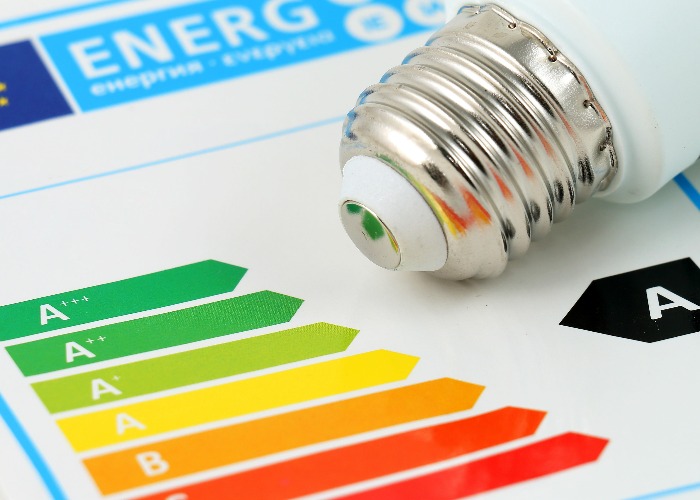Energy efficiency ratings help no one if we can’t trust them

Questions have been asked over just how useful the energy efficiency ratings handed to white goods really are.
What do you look for when you’re in the market for a new TV or a fridge? For many of us, checking just how energy efficient our white goods are is a big factor in deciding which one to go for.
The trouble is that it seems those energy efficiency ratings that you’ll find for the item in question isn’t worth the paper it’s written on.
A pointless test produces a pointless result
Reports in The Times over the last month, based on energy efficiency whistleblowers, have cast doubt on whether we can actually trust the efficiency ratings given to TVs, boilers and fridges, as the tests used to produce those ratings don’t actually reflect the way we would typically use these goods.
With boilers, for example, energy performance labels are exaggerating just how efficient these units are by an average of 10%.
The efficiency score is often displayed based on an XL consumption of 325 litres, yet the typical British home only uses 80 litres of hot water a day.
Not only is this a frankly ludicrous difference, but it’s clearly open to abuse - when a boiler is used to produce such a massive quantity of hot water, it is going to undergo far fewer warming and cooling cycles, in which some energy will be wasted, resulting in the boiler getting a better rating than it really merits.
It’s worth noting that these tests are based on rules drawn up by the EU and are standard across the bloc, so it’s not a unique problem to the UK. Who knows, maybe our European cousins just heat a hell of a lot more water every day, which is why the tests involve such massive water consumption...
Read more: how to save thousands on a new boiler
Problems with tests for TVs, dishwashers and fridges
There are also big question marks over the information provided with the likes of TVs, dishwashers and fridge freezers.
An 18-month investigation was carried out by an alliance of bodies including the European Environmental Bureau, and it found that manufacturers may be testing appliances on the lowest possible settings in order to reduce the amount of energy they appear to use.
Dishwashers, for example, were found to use up to 73% more energy if they weren’t being used in eco mode, while energy use by fridge freezers jumped by a third under the more rigorous testing compared to what was being claimed by the makers.

With one TV tested, the actual energy use jumped by 47% when tested based on real-world viewing, rather than the European standard measurement.
Chris Spiliotopoulos, an expert at the European Environmental Citizens Organisation for Standardisation, which co-authored the report, said: “To get the best deal for our citizens and planet, we can no longer rely on outdated and unrepresentative test methods that may provide an unfair playing field.”
11 ways to cut your energy bills: from better radiators to Government help
Misleading claims around new homes
This isn’t an issue limited to individual products either.
A study by the University of Bath last year found that thousands of new homes, as well as schools and offices, are using DOUBLE the amount of energy they should because planners are overestimating just how efficient they will be.
Lord Deben, chairman of the government’s committee on climate change, has also accused the nation’s biggest housebuilders of producing “crap houses” that offer a far lower energy efficiency than is claimed and “cheat the public”.
Why this matters
There are a couple of big reasons why this all matters. Let’s start with the bigger picture - most of us are trying to be a little more environmentally friendly and ensure the planet is in a relatively decent position for our kids and grandkids to inherit.
Whether it’s firms cutting out their use of single-use plastic or individuals like you and me at least taking a look at which white goods are going to be a bit more efficient, it all counts towards being at least a little bit greener. Given that, energy efficiency ratings which are a load of old cobblers is a slap in the face.
But secondly, there is a financial element to all of this too. Going for an energy efficient option, whether it’s a TV or a new home, should mean we save money through lower energy bills.
If I’m being lied to about how energy efficient my home is, I won’t really see the impact of that lie on the environment, but I sure as hell will see it when my energy bills start coming in and they are hundreds of pounds higher than expected.
Forcing manufacturers to advertise just how energy efficient their products are is definitely a good thing. But it’s a complete waste of all of our time if those ratings are based on pointless tests that bear little or no relation to how normal people are going to use them.
Comments
Be the first to comment
Do you want to comment on this article? You need to be signed in for this feature